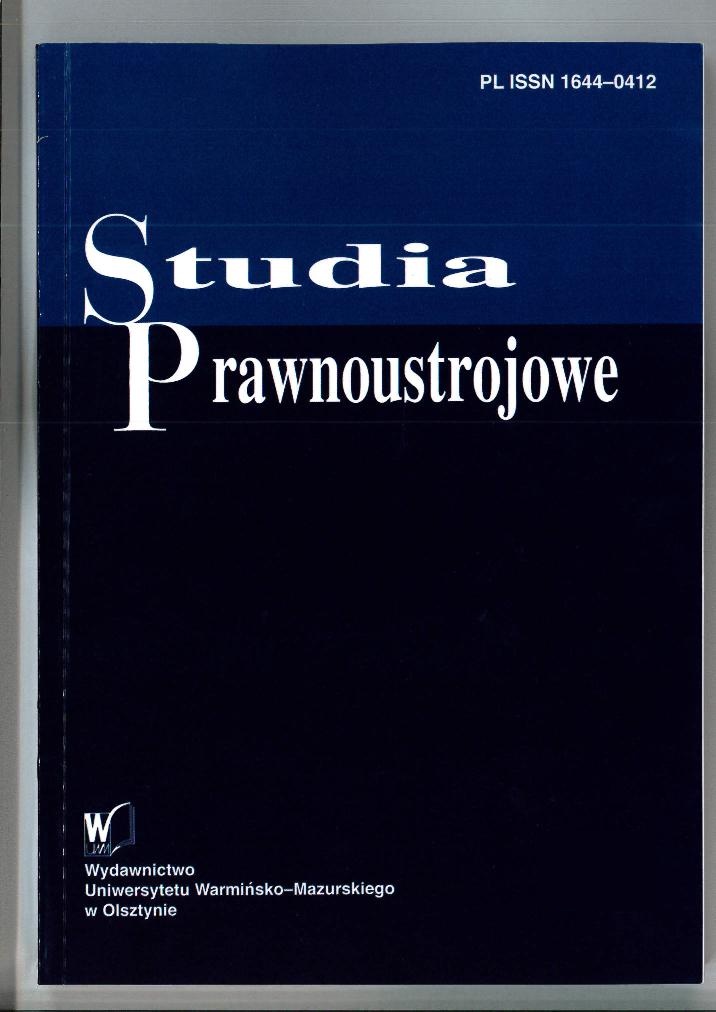Unijna taksonomia jako potencjalny warunek pomocy państwa dla przedsiębiorców – uwagi na gruncie gospodarczego prawa środowiska
The EU taxonomy as a potential condition for state aid to entrepreneurs – remarks based on economic environmental law
Author(s): Tomasz Bojar-FijałkowskiSubject(s): Energy and Environmental Studies, Civil Law, Socio-Economic Research, Administrative Law
Published by: Wydawnictwo Uniwersytetu Warmińsko-Mazurskiego w Olsztynie
Keywords: public law; taxonomy; European Union; economic activity; state aid; environment; climate;
Summary/Abstract: The EU has set itself ambitious environmental goals. Meeting them requires significant changes in the Community economy. At the same time, businesses and individuals have experienced unprecedented difficulties in recent years because of pandemics, war and the energy crisis. Just one of these would be enough to trigger a marked increase in interventionism and the scale of state aid. The implementation of the doctrine of the “European Green Deal”, together with each piece of legislation, presents new directions, but also new conditions for economic activity in the common market. Therefore, it is worth considering whether the increase in activity of the Member States as well as the EU itself in terms of business aid is accompanied by changes in the principles and criteria of these activities. How do environmental and climate regulations affect public economic law, both in freedom of economic activity and state aid? What are the criteria for considering an economic activity as environmentally sustainable and are they a sine qua non for state aid? The article aims to answer the questions posed in this way, which requires the application of a dogmatic and legal-historical analysis. The first part focuses on the concept of state aid and the characteristics of state aid. The second part focuses on the common area of environmental law, including climate law, with public economic law referred to as economic environmental law. The specificity and practical role of the “European Green Deal” doctrine and its impact on legislation are considered here. The third part deals with taxonomy, i.e. new standards for categorizing economic activities as environmentally sustainable. The whole is concluded with conclusions and de lege ferenda postulates. The work is based on literature on climate, environmental and public economic law. Legal status up to 30 November 2023. Among the conclusions, state aid is not formally defined, and state aid is a broader category. Recent years have seen unprecedented activity and aid from Member States aimed at entrepreneurs, but also households. The realization of the transformation of the EU economy to a more sustainable one is expected to generate aid for individuals, including entrepreneurs, making the expected changes in the profile and characteristics of their economic activity. Broad investments to realize the green transition will also be financed. Regulation 2022/852 aims to harmonize the criteria for determining whether an economic activity qualifies as environmentally and climate sustainable. As a first step, it will be the responsibility of financial market participants to reliably inform customers about the environmental impact of the goods and services they offer. The subject catalogue of the taxonomy is completed by the entrepreneurs to whom the CSRD applies. Based on these criteria, the EU legislator will put forward regulations in sustainable production labelling. Subsequently, entrepreneurs fulfilling the criteria of taxonomy will be granted certain privileges. Fulfilment of the taxonomy criteria is not at this point a condition for obtaining state aid in the broad sense, particularly national aid, but it is already a condition for accessing resources from the Fair Transition Fund. An entrepreneur who does not meet the taxonomy criteria will be excluded from the green certificate program. It is to be expected that in the not-too-distant future the taxonomy criteria will become a sine qua non for obtaining any funds from the European Union and even participation as a contractor in investment projects.
Journal: Studia Prawnoustrojowe
- Issue Year: 2024
- Issue No: 63
- Page Range: 35-47
- Page Count: 13
- Language: Polish

